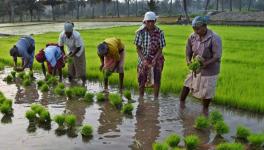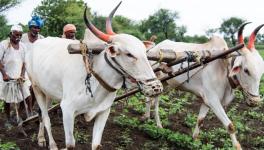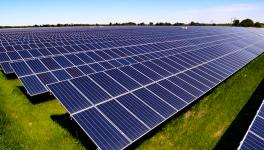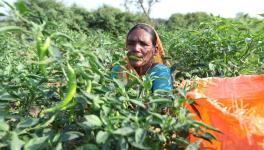Maharashtra: Agricultural Activities Badly Affected by Inflation
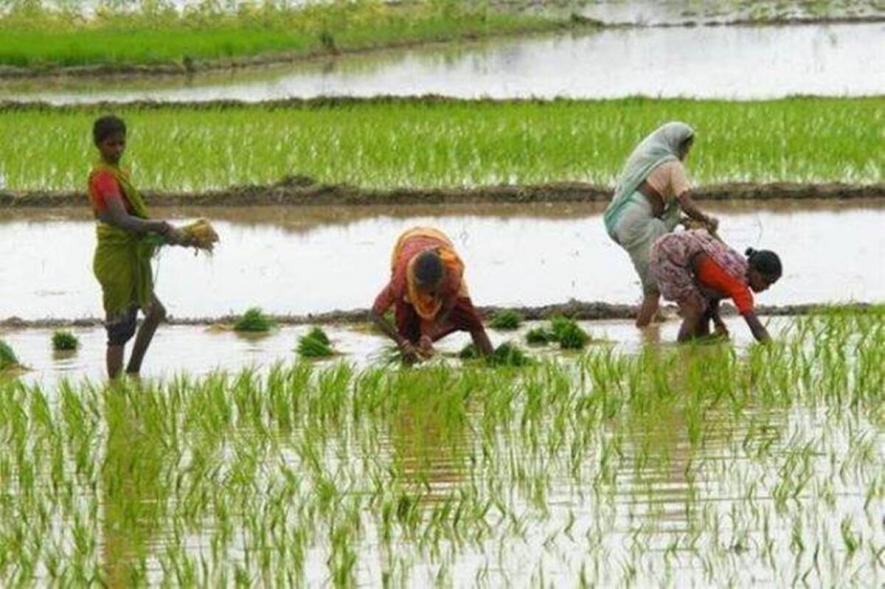
Image Courtesy: The Financial Express
As unseasonal rains hit the coastal zone of Maharashtra, paddy growing farmers have started ploughing on their farms. Vasudev Koyande from Mangaon village in Sindhudurg district contacted Sachin Digaskar, a person from the same village who owns a power trailer. But, Koyande was left shocked when Digaskar told him about the latest renting rates for the power trailer.
"Last year, he rented the power trailer for Rs 200/hour. All the ploughing was done for Rs 1200. But Digaskar is asking Rs 250/hour this time," said Koyande.
When NewsClick contacted Digaskar, he said, "Diesel rates are so high and increasing every day. It is not affordable for me to rent a power trailer at last year's rates. It includes all maintenance of the power trailer and my charges to drive it. What can I do? I can give a concession of Rs 5-10, not Rs 50."
Inflation has impacted people across sections; even then, most stories only focus on how the issue affects the middle class. Almost negligible coverage has been directed towards other dimensions of inflation, especially the most-affected sections, such as marginalised communities, farmers and the poor.
As Kharif season is just one and a half months away, farmers are worried about the increased rates of agricultural commodities.
According to Maharashtra's agriculture ministry, approximately 141.98 lakh hectares of land will go for the Kharif season, excluding land under sugarcane plantations. Agriculture experts believe that the cost of ploughing this much land would go to Rs 2800 crores- around 30% higher than last year. In such a situation, the hardships of farmers are only set to increase.
"Farmers organisations have been asking to reduce diesel-petrol rates for quite some time. This increased cost of farming will kill the agricultural economy. Agriculture is already a loss-making business. Addition of inflation to it would make it worse," said Dr Ajit Nawale, general secretary of All India Kisan Sabha (AIKS) Maharashtra.
The rise in petrol-diesel prices will also lead to an increase in fertiliser prices, human resources, seeds, transportation of crops, etc., thereby adding to the already rising expenses of farmers. If the government can't match up all these costs while deciding on a minimum support price (MSP), the agrarian crisis will only worsen.
A similar situation prevails in horticulture too. The increased diesel and petrol rates have upped the entire chain's cost.
Mangoes from Konkan, famously known as Alphonso, are famous across India. Districts like Ratnagiri and Sindhudurg are hubs of Alphonso production. Generally, Alphonso growers pluck the fruits and bring them to the Mumbai market for wholesale trade. The mango market in Navi Mumbai buys and sells 80,000 to 1 lakh boxes of mangoes every day. Every box contains four-six dozen mangoes, depending on the fruit's size.
These days farmers are getting Rs 1600-1800/box of four dozen. Six dozen boxes mean fruit size is smaller than king size Alphonso, priced at Rs 1200-1400/box. Farmers used to pay around Rs 60-100 (depending on the distance to Mumbai from their gardens) for each box. This year, the transportation cost/box has increased to Rs 85-135, an increase of Rs 25-35 on every box.
Some farmers send 12,000-16,000 boxes every year to the Mumbai market. There are small-scale mango orchid owners who send around 100-200 boxes.
Ankush Ghadi from Kumbhavade, Ratnagiri, expect to send around 145 boxes this year. His total income with an average rate of Rs 1400/box would be Rs 2.3 lakh. This year, he will have to pay Rs 85/box, taking his total transportation cost to Rs 12,325. With the extra Rs 25 on every box, Ghadi will lose around Rs 3600 in transportation costs.
"We will have to pay the transport company otherwise we will lose what we are getting. This fuel hike is hurting us badly. But whom to complain?" asked Ghadi.
Small-scale owners of any fruit orchid will have to pay an amount from their meagre income. Income hasn't changed, but expenses have increased multiple folds.
The Union government has promised to double farmers' income by 2022. It is just six months away. That is just one season away—the season staring at farmers with higher prices for everything. Forget the double. The farmers are even worried about maintaining last year's income.
Get the latest reports & analysis with people's perspective on Protests, movements & deep analytical videos, discussions of the current affairs in your Telegram app. Subscribe to NewsClick's Telegram channel & get Real-Time updates on stories, as they get published on our website.











